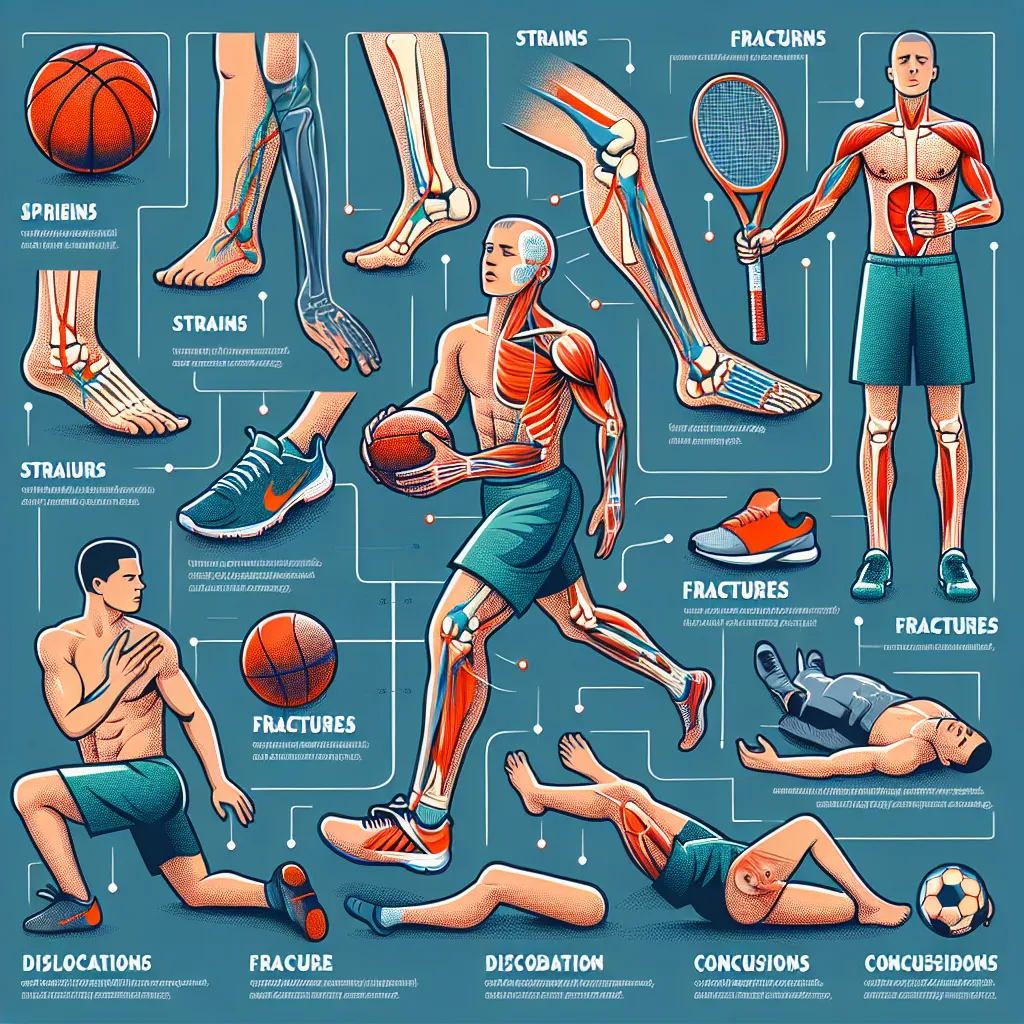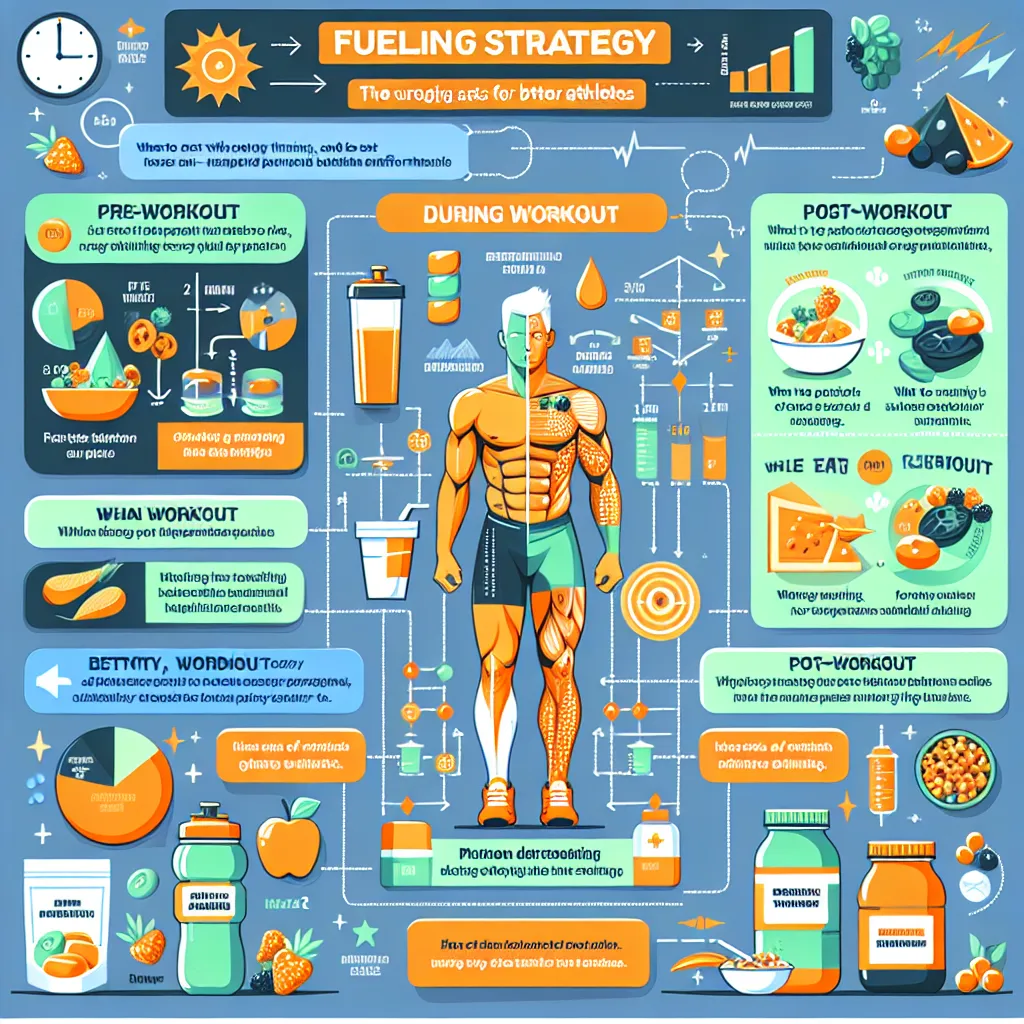Sports injuries are a common topic in IELTS exams, particularly in the Speaking and Writing sections. Understanding the vocabulary related to this field is crucial for achieving a high score. In this guide, we’ll explore key terms, their usage, and practical tips to help you excel in your IELTS preparation.
Nội dung bài viết
Understanding Sports Injuries
Sports injuries refer to physical damage that occurs during athletic activities. These injuries can range from minor sprains to severe fractures and can affect various parts of the body.
 Types of Sports Injuries
Types of Sports Injuries
Definition and Pronunciation
- Sports injuries /spɔːts ˈɪndʒəriz/ (noun phrase): Physical harm or damage to the body resulting from sports or exercise activities.
Common Types of Sports Injuries
-
Sprain /spreɪn/ (noun): A stretched or torn ligament.
Example: “The footballer suffered a severe ankle sprain during the match.” -
Strain /streɪn/ (noun): An overstretched or torn muscle or tendon.
Example: “After lifting heavy weights, he felt a strain in his lower back.” -
Fracture /ˈfræktʃər/ (noun): A broken bone.
Example: “The X-ray revealed a hairline fracture in her wrist.” -
Dislocation /ˌdɪsləˈkeɪʃən/ (noun): When a bone is forced out of its normal position in a joint.
Example: “The basketball player’s shoulder dislocation required immediate medical attention.” -
Concussion /kənˈkʌʃən/ (noun): A brain injury caused by a blow to the head.
Example: “The rugby player was diagnosed with a concussion after a collision on the field.”
Using Sports Injuries Vocabulary in IELTS
In IELTS, you may encounter questions related to sports injuries in various sections. Here’s how you can use this vocabulary effectively:
Speaking Section
In the Speaking test, you might be asked about personal experiences with sports or opinions on sports safety. Use specific vocabulary to enhance your responses:
Example question: “Have you ever had a sports injury? Can you describe what happened?”
Sample answer: “Yes, I once sprained my ankle while playing soccer. I landed awkwardly after jumping for the ball and felt a sharp pain. The doctor said it was a mild ligament tear, and I had to rest and apply ice to reduce the swelling. It took about three weeks of rehabilitation before I could return to playing.”
Writing Section
In Task 2 essays, you might need to discuss topics related to sports safety or healthcare. Incorporate relevant vocabulary to demonstrate your language proficiency:
Example topic: “Some people believe that certain sports are too dangerous for children. Do you agree or disagree?”
Sample paragraph: “While it’s true that some sports carry risks of injuries, such as concussions in rugby or fractures in skiing, I believe the benefits outweigh the potential dangers. Proper training, adequate safety equipment, and supervision can significantly reduce the likelihood of serious sports-related injuries. Moreover, learning to manage risks and recover from minor sprains or strains can build resilience and teach valuable life lessons.”
Expanding Your Vocabulary
To further enhance your sports injuries vocabulary, consider these related terms:
-
Rehabilitation /ˌriːəˌbɪlɪˈteɪʃən/ (noun): The process of recovery after an injury.
Example: “The athlete underwent intensive rehabilitation to regain full mobility in her knee.” -
Physiotherapy /ˌfɪzɪəʊˈθerəpi/ (noun): Treatment of injury through physical methods such as massage and exercise.
Example: “Regular physiotherapy sessions helped speed up her recovery from the shoulder injury.” -
Chronic injury /ˈkrɒnɪk ˈɪndʒəri/ (noun phrase): A long-term injury that develops over time.
Example: “Many tennis players suffer from chronic elbow injuries due to repetitive motions.” -
Acute injury /əˈkjuːt ˈɪndʒəri/ (noun phrase): A sudden injury that occurs due to a specific incident.
Example: “The goalkeeper sustained an acute knee injury while diving to save a goal.” -
Recovery time /rɪˈkʌvəri taɪm/ (noun phrase): The period needed for an injury to heal.
Example: “The doctor estimated a recovery time of six to eight weeks for the hamstring strain.”
Memory Techniques for Sports Injuries Vocabulary
To help remember these terms, try creating a mind map or using mnemonic devices:
- Create a body diagram and label different parts with potential injuries.
- Use acronyms: RICE (Rest, Ice, Compression, Elevation) for basic injury treatment.
- Associate injuries with sports: “Concussion” with boxing, “Sprain” with basketball ankle injuries.
 Sports Injuries Mind Map
Sports Injuries Mind Map
Practice Exercises
-
Fill in the blanks:
- The gymnast suffered a wrist _____ (fracture) after falling from the bars.
- Proper warm-up exercises can help prevent muscle _____ (strains).
-
Writing task:
Write a paragraph about the importance of proper equipment in preventing sports injuries. Use at least five terms from the vocabulary list. -
Speaking practice:
Describe a time when you or someone you know experienced a sports injury. What happened, and what was the recovery process like?
Conclusion
Mastering sports injuries vocabulary is essential for IELTS success, especially in tasks related to health, sports, and safety. By understanding and correctly using these terms, you can demonstrate a high level of English proficiency. Remember to practice regularly and use these words in context to solidify your learning.
We encourage you to share your experiences with learning this vocabulary in the comments section below. Have you encountered any of these terms in your IELTS preparation or real-life situations? Do you have any questions about using these words effectively in the exam? Let us know, and keep practicing to enhance your IELTS performance!
For more information on related topics, you might find these articles helpful:


